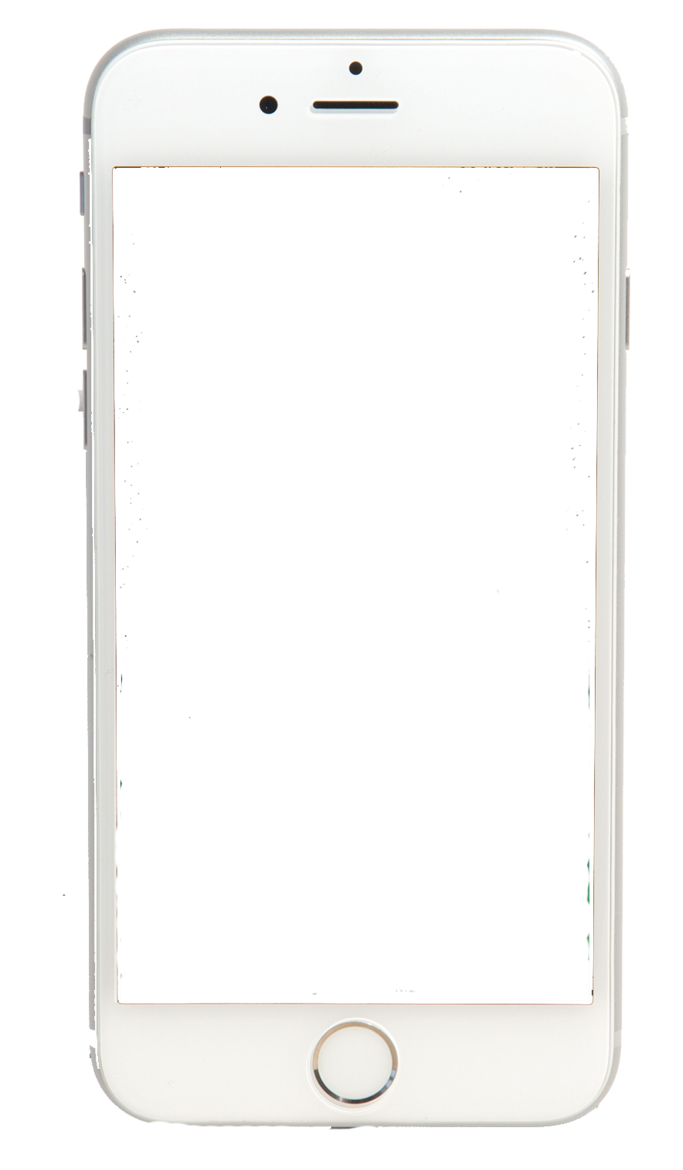You’ve probably heard it a thousand times: “It takes 21 days to form a habit.” So you commit to your new morning workout, track every day religiously, hit that magic three-week mark and… nothing. The habit still feels like a chore. You’re still dragging yourself out of bed. What went wrong?
Here’s the truth: the 21-day rule is a myth—and believing it might be why your habits keep failing.
Real scientific research from University College London reveals something far more nuanced: habits take anywhere from 18 to 254 days to form, with an average of 66 days. But here’s what changes everything: your personal timeline depends on factors unique to YOU—factors that AI can now analyze to give you an accurate, personalized answer.
What You’ll Discover:
- 🎯 The scientific truth about habit timelines (spoiler: not 21 days)
- 🧠 Three factors that determine YOUR unique timeline
- 🚀 How to use AI to get your personalized timeline in minutes
The Science: What Research ACTUALLY Says
The 21-Day Myth Debunked
The infamous “21 days” claim originated with Dr. Maxwell Maltz, a plastic surgeon in the 1960s who noticed his patients took about three weeks to adjust to their new appearance after surgery. He published this casual observation in his book Psycho-Cybernetics—but somehow, a surgeon’s anecdotal timeline for adjusting to physical changes morphed into universal gospel for forming any habit.
The problem? Maltz never claimed 21 days was scientifically proven for habit formation. He was describing adjustment, not automaticity. Yet this oversimplified number spread like wildfire because it’s memorable, sounds achievable, and fits neatly into self-help sound bites.
The Real Science: Phillippa Lally’s Landmark Study
In 2009, health psychology researcher Phillippa Lally and her team at University College London conducted the most comprehensive study on how long it takes to form a new habit. They tracked 96 participants as they built new daily habits—everything from drinking water to exercising—and measured when each behavior reached “automaticity” (the point where it feels natural and effortless).
The groundbreaking findings:
- Average time to automaticity: 66 days
- Range: 18 to 254 days depending on the person and habit
- Key insight: Missing occasional days didn’t derail progress—consistency mattered more than perfection
What This Means for You
The research revealed clear patterns based on habit complexity:
- Simple habits (18-30 days): Single actions requiring minimal thought—drinking water after waking, taking a daily vitamin
- Moderate habits (30-90 days): Multiple steps with some planning—20-minute workouts, daily journaling, meditation practice
- Complex habits (90-254+ days): Behavior pattern shifts requiring sustained cognitive effort—complete morning routine overhauls, meal prep lifestyles, career pivots
The crucial takeaway: There’s no universal timeline. How long does it take for a habit to form depends entirely on what you’re building and who’s building it.
The 3 Factors That Determine YOUR Timeline
Understanding how many days to create a habit requires looking beyond generic averages. Here are the three critical factors that determine YOUR personal timeline:
Factor #1: What You’re Trying to Build
Habit Complexity Matters Most
Your brain automates simple patterns significantly faster than complex ones. Why? Because automaticity develops when your brain can predict outcomes and execute actions without conscious deliberation.
Simple Habits (18-30 days):
- Single decision point, minimal cognitive load
- Examples: Drinking a glass of water upon waking, placing phone in another room before bed, taking daily vitamins
- Why they’re faster: One trigger, one action, immediate completion
Moderate Habits (30-90 days):
- Multiple sequential steps, moderate planning required
- Examples: 20-minute morning workout, daily 10-minute meditation, evening journaling practice
- Why they take longer: Requires preparation, sustained attention, and execution across multiple micro-actions
Complex Habits (90-254+ days):
- Behavior pattern overhauls, high cognitive demand, multiple decision points
- Examples: Complete meal prep lifestyle, comprehensive morning routine, relationship communication patterns
- Why they’re slowest: Dozens of micro-decisions, situational adaptability required, often competing with deeply ingrained existing habits
Real-World Comparison: Drinking water after brushing your teeth = one decision, one action. Meal prepping healthy lunches = planning menus, shopping strategically, batch cooking, portioning, cleanup—dozens of decisions weekly. That’s why one takes 20 days and the other might take 120.
Factor #2: Who You Are
Your Personal Context Dramatically Impacts Timeline
Two people building the exact same habit can have timelines that differ by 40+ days based solely on their individual circumstances:
Schedule Structure:
- Flexible remote worker with control over time: Faster timeline (fewer obstacles)
- Rigid 9-5 with unpredictable commute: Slower timeline (environmental friction)
Energy Patterns:
- Morning person building AM workout: Leverages natural peak state
- Night owl forcing 6 AM gym time: Fighting biology = longer timeline
Current Habit Infrastructure:
- Strong existing routines to “stack” new habits onto: Faster (built-in triggers)
- Chaotic, inconsistent daily schedule: Slower (no reliable anchors)
Natural Strengths:
- Love tracking data and seeing progress: Gamification accelerates timeline
- Competitive drive: Social accountability cuts weeks off timeline
- High self-discipline: Can power through initial friction faster
Common Obstacles:
- Chronic time scarcity: Extends timeline significantly
- Decision fatigue: Slows habit adoption (too many daily choices already)
- Low intrinsic motivation: Requires stronger external systems
Real Impact Example: Consider two people building the same daily gym habit:
Person A: Remote worker, morning person, home gym setup, loves tracking workouts Timeline: 35 days
Person B: Office worker with commute, night owl, must drive to gym, dislikes planning Timeline: 75 days
Same habit. Radically different timelines because of personal context.
Factor #3: How You Build It
The 3 Momentum Boosting Methods That Cut Timelines in Half
Research consistently shows habits form faster when you optimize how you build them. The Moore Momentum System codifies this into three evidence-based principles:
1. Make It OBVIOUS/Attractive:
- Clear environmental triggers that prompt action automatically
- Visual cues placed in your natural path
- Emotionally compelling or aesthetically appealing setup
Impact Example: Gym clothes laid out next to bed (obvious) vs. buried in closet drawer = 20 days faster to automaticity
2. Make It EASY:
- Minimal friction between decision and action
- Start absurdly small, scale gradually
- Remove obstacles proactively
Impact Example: Starting with 5-minute workout vs. committing to 45-minute routine = 30 days faster adoption rate
3. Make It FUN/Rewarding:
- Immediate satisfaction or pleasure embedded in the habit
- Built-in rewards or social accountability
- Emotional engagement (not just willpower)
Impact Example: Solo meditation at home vs. group class with friends = 25 days faster due to social reward and accountability
The Compounding Effect: When you optimize all three methods for your specific situation, you can reduce your timeline by 40-50%. A 66-day habit becomes 35-40 days. This is where AI-powered personalization creates breakthrough results.
Get YOUR Personal Timeline Using AI
Generic timeline advice fails because it ignores YOUR unique situation—your schedule, your strengths, your obstacles, your specific habit complexity. AI changes everything by analyzing your specific context to predict a realistic timeline AND provide personalized strategies to hit it faster.
Here’s exactly how to use AI to calculate your timeline:
The AI Timeline Calculator Prompt
Instructions: Copy this prompt template, fill in your specific details, and paste into ChatGPT, Claude, or your preferred AI assistant:
I want to build this habit: [BE SPECIFIC - "meditate 10 minutes daily before breakfast" not "be more mindful"]
ANALYZE MY TIMELINE BASED ON:
My Lifestyle:
• Work schedule: [remote/hybrid/office with commute, typical hours]
• Daily structure: [consistent routine vs. chaotic/variable]
• Stress level: [low/moderate/high]
• Available time slots: [morning/lunch/evening - be realistic]
My Strengths (choose 2-3 that apply):
• Morning person / Night owl
• Competitive / Self-motivated
• Love tracking data and progress
• Strong existing discipline
• Social accountability motivates me
• Detail-oriented planner
• [Add your own]
My Obstacles (choose 2-3 biggest challenges):
• Limited time / Overcommitted schedule
• Decision fatigue (too many daily choices)
• Low motivation / Need external push
• Inconsistent schedule / Unpredictable days
• No support system
• Perfectionism / All-or-nothing thinking
• [Add your own]
Habit Details:
• Complexity level: [simple/moderate/complex - reference examples from article above]
• Current similar habits I do consistently: [list any - these are stacking opportunities]
• Resources needed: [time duration, equipment, money, space]
• Existing routine I could attach this to: [e.g., "after morning coffee," "during lunch break"]
BASED ON LALLY'S RESEARCH SHOWING HABITS TAKE 18-254 DAYS (66 DAY AVERAGE):
1. Estimate MY realistic timeline and explain the specific factors affecting it
2. Give me 3 personalized strategies using the 3 Momentum Boosting Methods:
• Make it OBVIOUS: Exactly where/when to trigger this habit in MY daily routine
• Make it EASY: How to reduce friction given MY specific obstacles
• Make it FUN: Reward systems that match MY strengths and motivators
3. What should I track weekly to know I'm progressing toward automaticity?
4. What are red flags that I need to adjust my approach?
5. How should I handle missed days without derailing my timeline?
What Good AI Output Looks Like
Here’s a sample response to show what you’re aiming for:
“Based on your remote work flexibility and ‘morning person’ strength, your 15-minute reading habit should reach automaticity in 28-35 days (significantly faster than the 66-day average). Your primary obstacle is decision fatigue about book selection.
Personalized Strategies:
- OBVIOUS: Place your selected book directly on top of your coffee maker the night before. When you make coffee (existing habit), the book is impossible to miss.
- EASY: Pre-select your books every Sunday for the week ahead—eliminate morning decision-making entirely. Start with just 5 minutes if 15 feels overwhelming.
- FUN: Pair reading with your favorite coffee blend that you reserve ONLY for reading time. This creates a sensory reward that your brain will crave.
Track This: Rate your “effort level” weekly (1-10 scale). When you consistently hit 3 or below for two weeks straight, you’ve likely reached automaticity.
Red Flags: If effort isn’t decreasing by week 3, your book selections might be misaligned with your interests—switch genres.”
Follow-Up Prompts to Refine Your Timeline
After 2 weeks, assess progress:
I'm 14 days into my [HABIT]. Completed 11/14 days. Effort level feels [high/medium/low]. Biggest challenge has been [describe specific obstacle]. Am I on track for my predicted timeline? What should I adjust?
If you miss multiple days:
I missed 3 days due to [work deadline/illness/travel]. Does this reset my timeline completely? How do I get back on track without feeling like I'm starting over?
When the habit starts feeling automatic:
The habit feels significantly easier now at day [X]. Effort level is low. Should I increase the difficulty/duration, or maintain this level longer to cement automaticity?
Pro Tip: AI learns from your inputs. The more specific you are about your lifestyle and obstacles, the more accurate and actionable your personalized timeline will be. Vague inputs produce generic advice—detailed context produces breakthrough strategies.
Real-World Success Story
Meet Sarah: From Generic Advice to Personalized Success
Sarah, a 29-year-old marketing manager, wanted to build a daily yoga habit. Like most people, she started with the generic advice she found online: “Commit to 66 days and it’ll become automatic.”
Initial Approach (Generic Timeline):
- Guessed timeline: “Probably 66 days based on what I read”
- Strategy: “Just do it every morning”
- Result: Inconsistent. Felt like constant willpower battle. Quit after 28 days.
Second Attempt (AI-Powered Personalization):
Sarah used the AI prompt above with her specific details:
- Work: Hybrid schedule, high morning energy
- Strengths: Morning person, loves data tracking
- Obstacles: Decision fatigue about which yoga routine to do
- Habit complexity: Moderate (20-minute sessions)
AI Assessment Results:
- Predicted timeline: 38-45 days (not the generic 66)
- Why faster: Her morning person strength + home setup eliminated commute friction
- Critical bottleneck identified: Decision fatigue was her actual barrier
AI-Recommended Strategies:
- OBVIOUS: Keep yoga mat unrolled next to bed permanently (can’t miss it)
- EASY: Pre-select 5 YouTube routines every Sunday—zero morning decisions
- FUN: Special coffee blend (her passion) reserved ONLY for post-yoga mornings
Actual Result:
- Day 41: Habit felt completely automatic
- Not doing yoga started feeling wrong—the true sign of automaticity
- Now 6 months consistent
Sarah’s Reflection: “The AI personalization was game-changing. It didn’t just tell me to ‘stick with it for 66 days’—it showed me HOW to build it specifically for MY life. Working WITH my morning energy instead of generic advice made all the difference.”
Conclusion – How Many Days Does It Take to Form a Habit?
So, how many days does it take to form a habit?
Science gives us the range: 18 to 254 days, with 66 as the average. But that average is meaningless for YOU as an individual.
YOUR answer depends on three critical factors:
- What you’re building (simple vs. complex habit)
- Who you are (your lifestyle, strengths, and obstacles)
- How you build it (whether you optimize for obvious, easy, and fun)
The 21-day myth fails everyone. Generic 66-day advice fails most people. Personalized timelines work—and for the first time in history, AI can calculate yours in minutes.
Use the AI prompt above to get your timeline today. Or, discover the complete system that automates this entire personalization process, tracks your progress like a game, and ensures you actually hit your timeline instead of just hoping…
🎮 WANT THE SYSTEM THAT AUTOMATES YOUR ENTIRE HABIT TIMELINE?
The AI prompt you just learned? It’s built into the Moore Momentum System—a gamified, science-backed platform that identifies your “Golden Habits,” applies the 3 Momentum Boosting Methods automatically, and tracks your progress like leveling up in your favorite game.
No more guessing timelines. No more fighting generic advice that doesn’t fit your life. Just personalized habit formation that works WITH your schedule, strengths, and goals—making growth feel inevitable instead of impossible.
The Habits Coach uses AI to:
- Identify your optimal habits for maximum momentum across all 5 Core Areas of Life
- Personalize friction-reduction strategies to YOUR specific obstacles
- Gamify your progress with rewards, streaks, and visual upgrades
- Adapt as you grow, ensuring continuous balance and momentum






